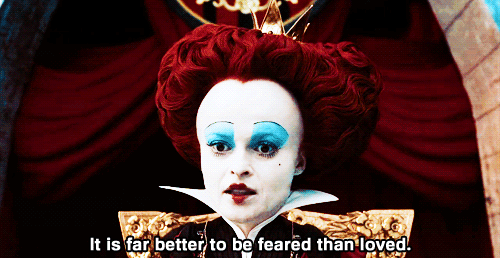I marched out to the living room, my stack of papers now stapled into various little packets with Beanie Babies (yes, Beanie Babies) drawn on each page in varying shades of colored pencils. I proudly presented them to my mom, who was helping us orchestrate this little venture.
"What are these?" she asked.
"Books," I proudly declared. "I'm going to sell books at our stand too!"
Little did I know that this simple act of wanting to sell my hand-drawn Beanie-Baby-themed picture books would spawn a lifelong obsession. An obsession that would cling to every bit of everything I was, until I became known as "that girl who writes books." Formative years would be split between puberty and the computer, college essays would become tomes dedicated to improving my craft and imparting my obsession on unsuspecting professors, friends would learn to cock an eyebrow and nod their heads sympathetically when I tried to explain how necessary it was for me to spend my evenings querying instead of going to homecomings and proms. Publishing and writing became such a vital part of who I was, who I am, that there isn't a single time in my entire life that I can't connect with a book I was writing or a story idea I was toying with.
For instance, when I was twelve, I met one of the most important people I would ever meet in my weird little story-world. She was sixteen, had long white hair, and was a refugee from the Kingdom of Winter. Her name was Meira, and she was the main character in my fantasy book, Giving Light.
This book overtook the next seven years of my life. It grew into a trilogy, complete with maps and drawings and covers and songs (yes, I wrote songs for it. Don't judge). No matter what teenage-related crisis I faced in my life, I always had Meira. I always had this story, and I held up lofty dreams of this book being IT for me. You know, THE BOOK that editors of the world react to like this:

But then, you know, reality smacked me upside the head, and the world reacted to it more like this:

After that on repeat for about three years, I set Giving Light aside and dove into other slightly more fantastic books (a pirate fantasy, a paranormal ghost story). I got agents (two) and went on submission (with two different books that lasted three years) and did this. A lot.

But things never really clicked with any of the other books I dove into, no matter how much I loved them. So, after yet another book was deemed good-but-not-quite-good-enough last summer, I took a good hard look at who I wanted to be as an author. I looked back on my lifelong struggle with this wild, crazy, infuriating world of publishing that I had made my own, and asked myself why I wanted this so badly.
And Meira popped back into my life.
Giving Light, now Snow Like Ashes, is still IT for me. It was my first love, my first fantasy, my first tried and true attempt at becoming published. You never forget your first love, and for me, it was a sixteen-year-old girl with long white hair who barely escaped with her life when the Kingdom of Winter was overtaken by the Kingdom of Spring. Meira is sassy and stubborn and flawed and loyal -- she knows what needs to be done and isn't afraid to do it. She's everything I wanted to be when I was twelve, and she's still everything I want to be now at twenty-three. Remembering how much I ADORED her and her story and how I felt when I was writing Giving Light helped me remember how excited I was to sell those god-awful hand-drawn picture books on the side of the road. How passionate I was to share some part of me with the world, to impart a smile or a tear or a laugh on someone because of something I had created. How writing is so much a part of me that I'm not even sure where it ends and I begin, and how a part of me will always, always NEED to do this.
So I recreated Snow Like Ashes and got to explore Meira's world once again. I got to revamp this story that had consumed so much of my teenage life and rediscover what made me love writing so much. I got to send it to my fantastic agent, Mackenzie Brady at Sheedy Literary, who fell in love with my messy, weird little world too and helped me shape it beyond anything I could have done on my own. I got to wait in balls of nauseated anxiety while she sent it out to editors. And then I got to read this:
Sara Raasch’s debut SNOW LIKE ASHES trilogy about Meira, a fierce chakram-wielding warrior from the Kingdom of Winter, who must struggle to free her people from the tyranny of an opposing kingdom while also protecting her own destiny, to Kristin Daly Rens at Balzer and Bray in a preempt, for publication in Fall 2014, by Mackenzie Brady at Charlotte Sheedy Literary Agency.
That's right -- Snow Like Ashes and its two subsequent books were picked up by Balzer and Bray and the first is set for publication Fall 2014.
And I cannot stop sobbing. Seriously, I've been doing this for the past month:

And this:

And pretty much every other excited, weeping, dancing thing you can imagine. But mostly the don't-know-what-to-do-my-whole-brain-is-crying because, seriously, WHAT DO I DO MY WHOLE BRAIN IS CRYING, FREAKIN' Kristin Rens at FREAKIN' Balzer and Bray IS MAKING MY CHILDHOOD DREAM A REALITY.
Five-year-old Writer Sara, twelve-year-old Writer Sara, hell, twenty-three-year-old Writer Sara are all numb with shock and keep having to break for small bouts of uncontrollable sobbing. I've been dreaming of this moment quite literally my entire life. Twenty-three years of trying so unbelievably hard to get here, to this very moment. Here, where things are beginning. I don't even know how to properly articulate the gravity of this moment. There are no words for this kind of joy.
The title of this blog post is a line from Snow Like Ashes. It is a battle cry of sorts for the Winterians -- someday they will be more than words in the dark. This line has been my battle cry for as long as I can remember. A small, feeble string of words that I would see sitting in my manuscript and think "Someday. Someday I will be more than words in the dark."
Someday is such an elusive, maddening word. Someday could never come -- but someday can also be closer and better than you ever dreamed.
We are more than words in the dark now, Meira. We've finally gotten here.



